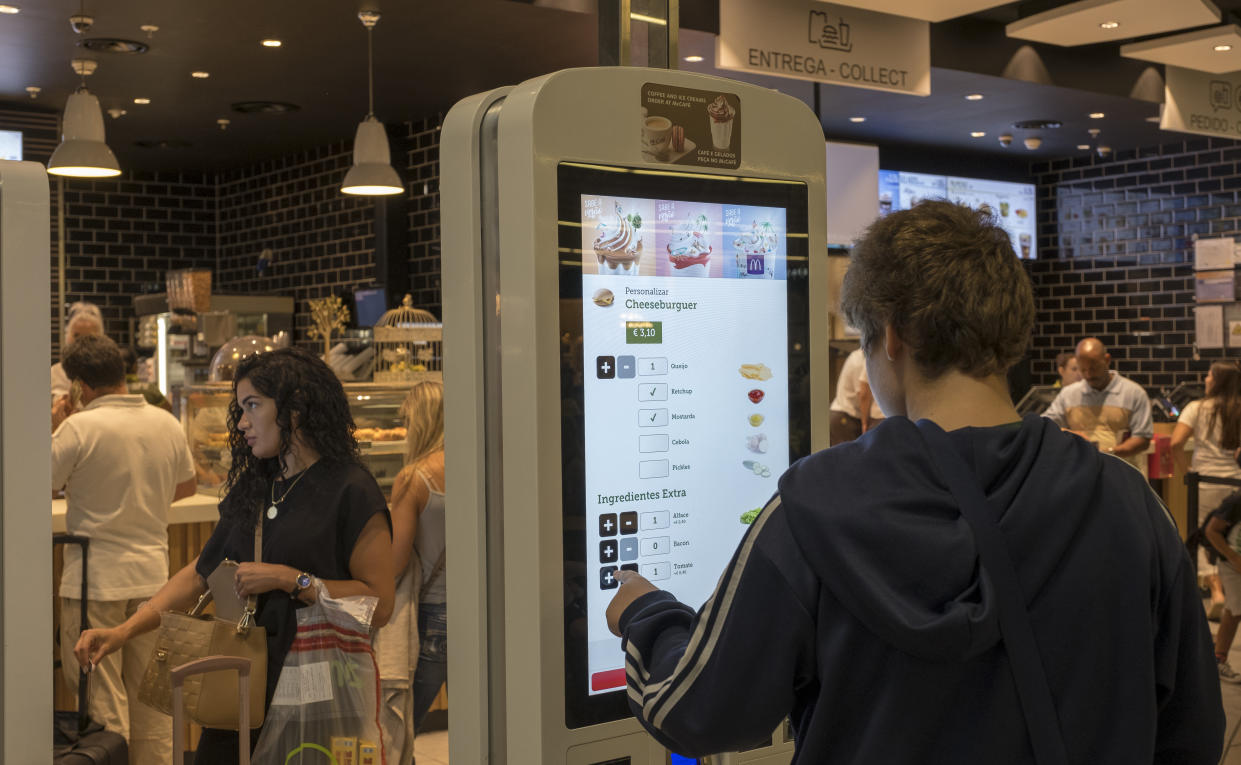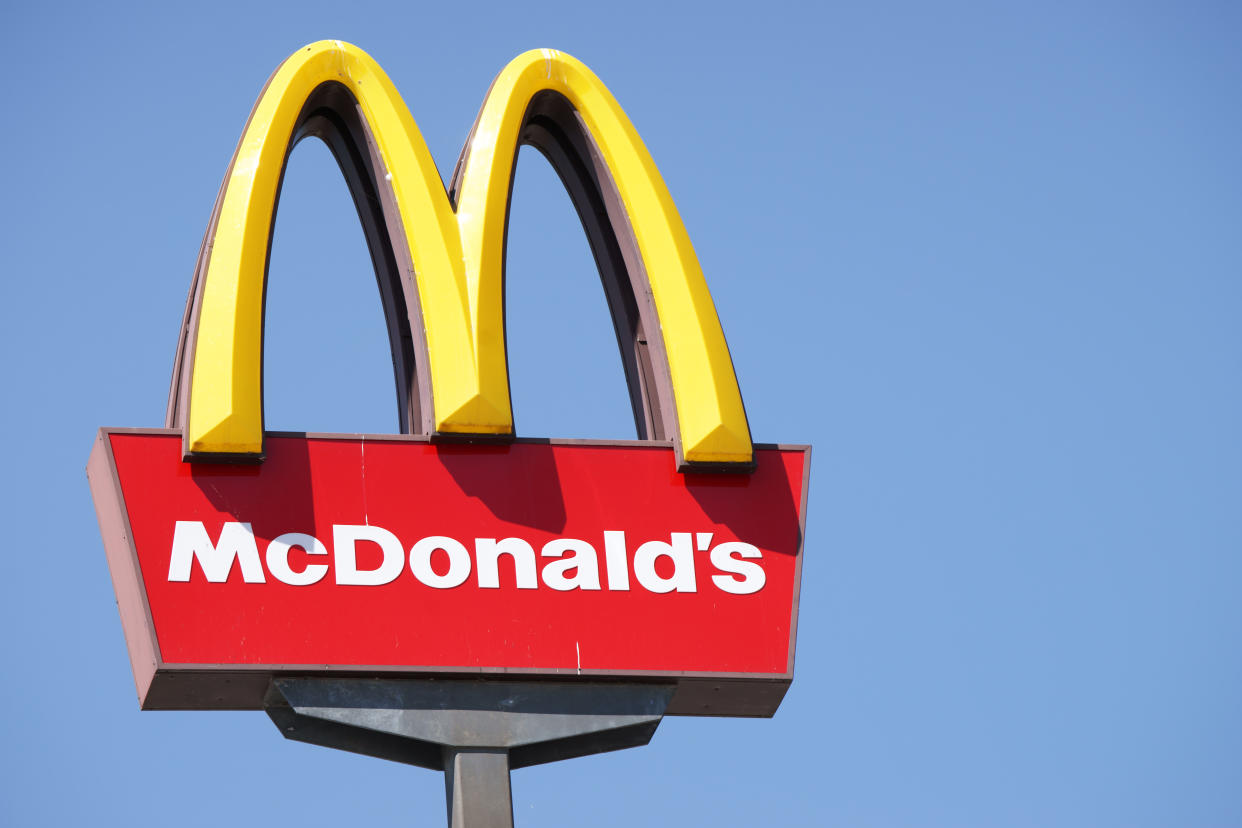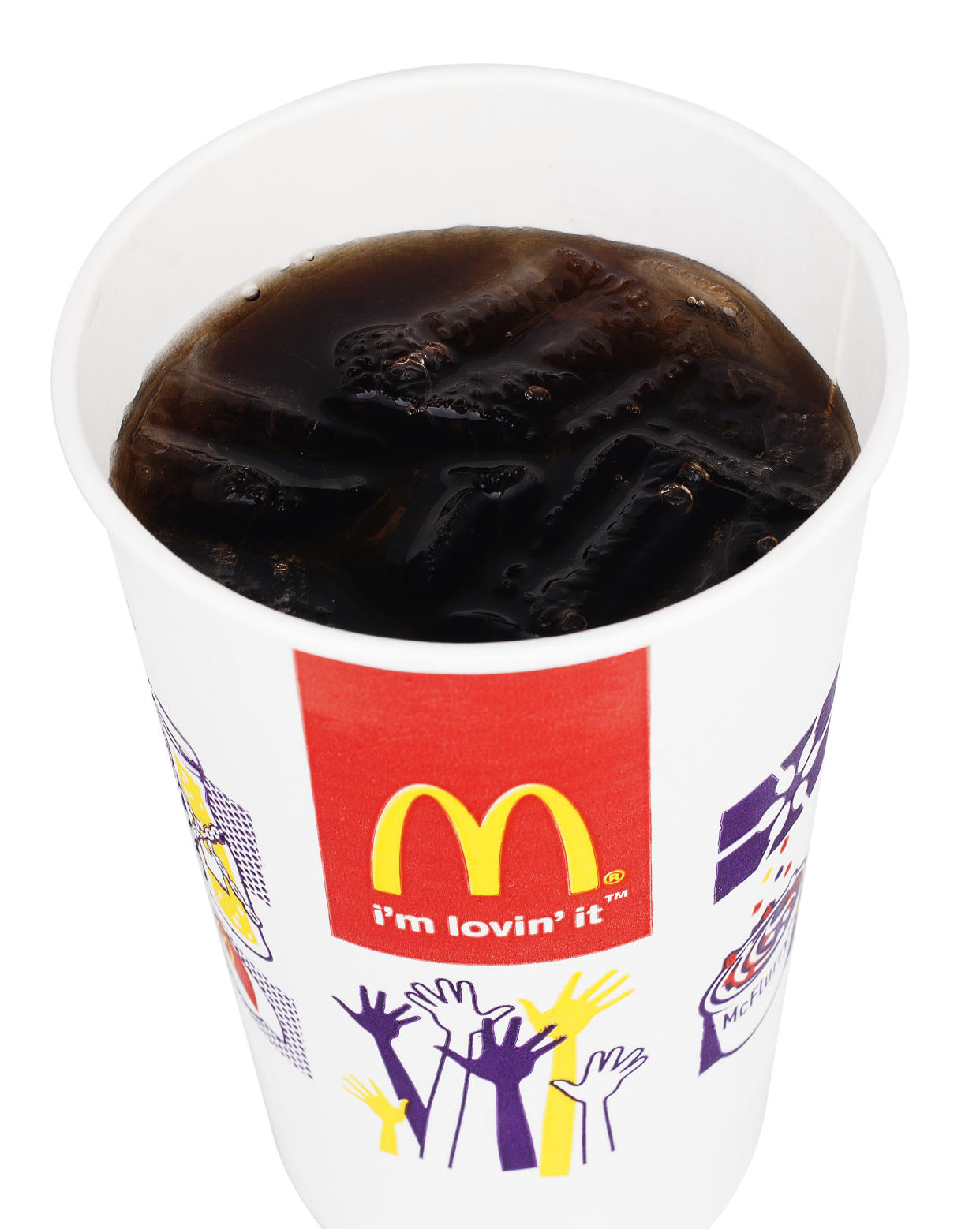McDonald's menus 'trick consumers into buying healthier options'

Touchscreen menus at McDonald's have been 'tricking' customers into choosing healthier options, it was claimed today.
The fast food giant is well-known for its calorific Big Macs, French fries and milkshakes.
But an academic study has found that the introduction of the touchscreen order kiosks persuaded customers to choose less sugary options.
The revelation came when the company changed the positioning of the soft drinks in the menu list.
The button for Coke Zero was moved to the top left in 622 stores for 12 weeks in 2016.
Researchers found that sales of Coke Zero, which contains no sugar, increased by 21 per cent.

Meanwhile, sales of Coca Cola, which contains 170 calories for the medium size and 42 grams of sugar, fell by 9 per cent.
The researchers, from the Universities of Warwick and Manchester, found that sales of Coke Zero increased and Coca Cola decreased overall by more than 300 drinks per store.
The authors believe that by changing the order and listing a healthier item first, the customer has a chance to reconsider their choice.
The customer expects Coca-Cola to be in one place but is then prompted to reconsider ‘their otherwise habitual menu choice’, according to the findings.
Dr Ivo Vlaev, a behavioural scientist from Warwick Business School and co-author of the study, said it was ‘shocking’ that such a large change had been observed.

‘You can call it a cognitive trick. ‘It’s based on a bias, or a psychological blind spot we have when we are looking at the range of options in front of us or the world outside of us, because we focus our attention on things that are more salient, or are immediately coming in front of us,' he said.
'Our eyes follow certain patterns when we are looking at the world, as when you’re reading a page in a magazine.'
The researchers initially worked with McDonald’s, which funded the study, to make Coke Zero the 'default' choice when ordering a meal.
But they were not able to do this because some people are allergic to the sweeteners used to replace sugar.
MORE FROM YAHOO NEWS
McDonald’s employee fired for refusing service to paramedics
AI drive-thru menus to be introduced at McDonald’s
McDonald's new 'eco-friendly' paper straws cannot be recycled
The study shows that changes can be made without affecting businesses’ profits, and shows how industry can be a conduit for public health messages.
'You can make a big difference by small changes at the right time and place,' Dr Vlaev said.
'It doesn’t need to be complex, you can replicate what we did with McDonald’s.'
'It’s a win-win if you do it the right way, and behavioural science could be the tool to find such a win-win situation.'
The study was published in the journal Psychology & Marketing.


